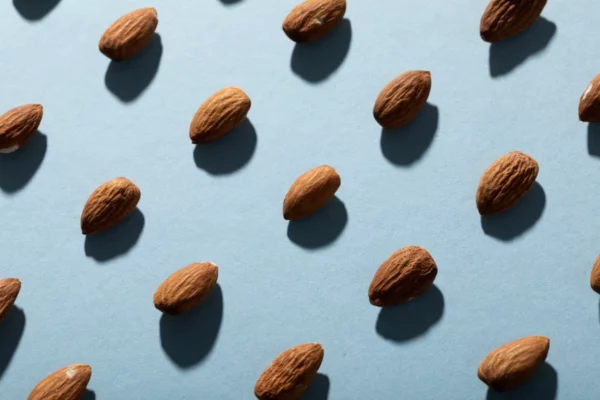Key Takeaways
- High Fiber Intake: A higher intake of dietary fiber, especially from whole foods, plays a crucial role in improving gut health and reducing the risk of mood disorders.
- Mental Health Benefits: Studies show an inverse association between fiber intake and symptoms of depression, anxiety, and other mood disorders.
- Gut-Brain Axis: The gut microbiome, significantly influenced by dietary fiber, is linked to brain function and mental health.
- Diverse Nutrient Profile: Fiber-rich foods often contain essential nutrients like B vitamins, Vitamin C, and fatty acids, vital for overall health and brain development.
- Lifestyle Integration: Incorporating high-fiber foods into daily meals, along with physical activity, can lead to a healthier diet and better mental health outcomes.
Introduction
In recent years, the connection between diet and mental health has gained significant attention. Numerous studies have explored how dietary patterns, particularly the intake of dietary fiber, affect mood disorders. This article delves into how increasing dietary fiber can help prevent mood disorders, backed by scientific evidence and expert opinions.
The Connection Between Dietary Fiber and Mood Disorders
Understanding the Gut-Brain Axis
- Gut Microbiota and Mental Health: The gut microbiome, consisting of trillions of bacteria, plays an important role in producing neurotransmitters like serotonin. A high-fiber diet supports a healthy gut microbiota, which is crucial for brain function and mood regulation.
- Impact of Fiber on Brain Development: Dietary fiber helps in reducing oxidative stress and chronic inflammation, both of which are implicated in mood disorders and depression symptoms.
Observational Studies and Systematic Reviews
- Evidential Support: Observational studies and systematic reviews have found an inverse association between high fiber intake and depressive symptoms, suggesting that a diet rich in fiber may reduce the risk of developing mood disorders.
- Further Research: While these studies highlight a significant correlation, further research is needed to understand the complex relationship between dietary fiber and mental health conditions.
A high-fiber diet can significantly contribute to preventing mood disorders and enhancing teenage health. A balanced gut microbiome can positively influence the production of neurotransmitters like serotonin and dopamine, which regulate mood and emotional well-being. For teenagers, whose bodies and minds are still developing, incorporating ample dietary fiber promotes not only digestive health but also mental resilience and overall well-being.
Dietary Fiber and Its Mental Health Benefits
Components of a High-Fiber Diet
- Whole Grains: Foods like oats, quinoa, and whole wheat are rich in dietary fiber and B vitamins, contributing to improved gut health and reduced depressive symptoms.
- Fruits and Vegetables: High in fiber, vitamins, and antioxidants, fruits and vegetables play an important role in maintaining overall health and mitigating mood disorders.
Influence on Mental Disorders
- Reduced Risk of Depression: A high-fiber diet, as part of a healthy lifestyle, has been linked to a reduced risk of depression and other mental disorders.
- Supporting Brain Function: By improving gut health and reducing inflammation, a high fiber intake supports brain function and may help alleviate symptoms of mood disorders.
The Mediterranean Diet: A Model for High Fiber Intake
Key Components
- Rich in Dietary Fiber: The Mediterranean diet, which includes whole grains, legumes, fruits, and vegetables, is high in dietary fiber.
- Additional Nutrients: This diet also includes olive oil, fatty acids, and B vitamins, all essential for brain health and reducing depressive symptoms.
Impact on Mood Disorders
- Evidence of Effectiveness: Studies have shown that following a Mediterranean diet can lead to improved mood and reduced symptoms of depression and anxiety disorders, especially in postmenopausal women.
Lifestyle Integration for Mental Health
Dietary and Lifestyle Changes
- Physical Activity: Combining a high-fiber diet with regular physical activity can enhance energy levels and overall health, further improving mental well-being.
- Avoiding Unhealthy Diets: Minimizing intake of ultra-processed foods, soft drinks, and artificial sweeteners, which are linked to poor diet quality and mood disorders, is crucial.
FAQs on Dietary Fiber and Mood Disorders
- How much fiber should I consume daily to improve mental health?
- Aim for at least 25-30 grams of fiber per day, as per the recommendations of national health organizations.
- Can dietary fiber supplements replace whole foods for mood benefits?
- While supplements can be beneficial, whole foods provide a more diverse range of nutrients essential for mental health.
- What are some high-fiber snacks to improve mood?
- Options include fresh fruits, nuts, dark chocolate, and whole-grain snack foods.
- Is there a link between dietary fiber and anxiety disorders?
- Yes, a diet rich in fiber can positively impact gut health, which is linked to reduced symptoms of anxiety disorders.
- Can changing my diet really help with major depressive disorder?
- Diet is one aspect of treatment; it can complement other treatments but should not replace medical advice.
- What role does fiber play in the treatment of depression?
- Dietary fiber helps maintain gut health and reduces inflammation, which are important factors in the treatment of depression.
- How does a high-fiber diet affect energy levels?
- High-fiber foods help stabilize blood glucose levels, leading to sustained energy levels.
- Can dietary fiber impact brain development?
- Yes, through its influence on gut health and nutrient absorption, dietary fiber can positively impact brain development.
- What are the mental health benefits of a Mediterranean diet?
- The Mediterranean diet, rich in fiber and essential nutrients, is linked to lower rates of depression and better mental health.
- How quickly can dietary changes affect mood?
- While individual experiences vary, many people report feeling better within a few weeks of making dietary changes.









